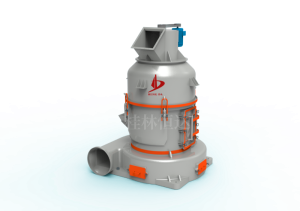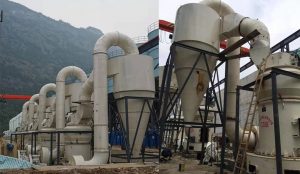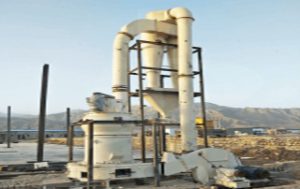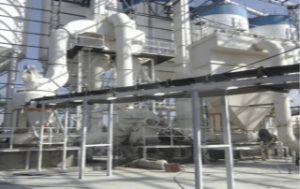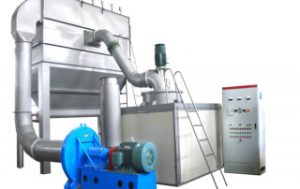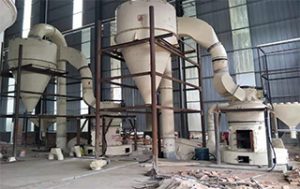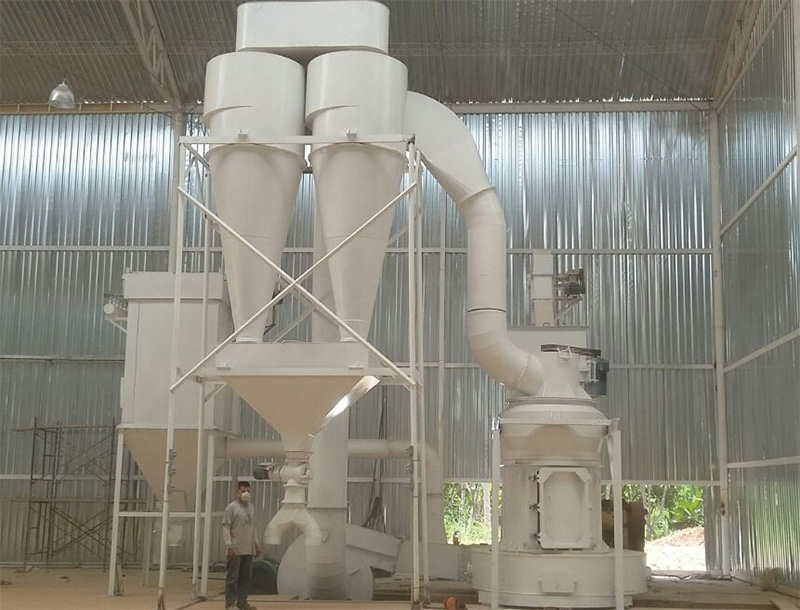Where will China’s calcium carbonate industry go? How to innovate? How to develop, do you want to be a standard? In an exclusive interview with Wang Xiaofeng, President of China Inorganic Salt Industry Association and Hu Yongqi, President of calcium carbonate industry branch in Beijing, two celebrities pointed out the direction for us!
Liu Ping: Hello, I’m Liu Ping of mineral materials network. I’m lucky to meet Wang Xiaofeng, President of China Inorganic Salt Industry Association in Dexing, Jiangxi Province today. Hello, President Wang! This is Hu Yongqi, vice president of China Inorganic Salt Industry Association and President of calcium carbonate industry branch. President Hu is also an expert in calcium carbonate. Today, we ask two experts about calcium carbonate in Dexing.
Liu Ping: President Wang, you are a professor level senior engineer and expert in the inorganic salt industry. Now you are at the helm of China Inorganic Salt Industry Association and have rich experience and broad vision in the inorganic salt industry. What do you think of the current situation and problems of China’s calcium carbonate industry?
President Wang: I think the current situation of calcium carbonate in China is still very large. Of course, it is definitely the first in the world. In terms of application, we are also a big application country and ranked first in the world. These are no problem. However, in terms of product quality, there are more general-purpose products, so there are problems. The general-purpose products and output of our whole industry are relatively surplus, but the special and more refined products are still very lacking.
Liu Ping: now the functional and refined products, especially the special and functional products, are lacking. For example, there are few functional materials for papermaking.
President Wang: in addition, the scale of a single enterprise is relatively small and relatively scattered, resulting in relatively poor overall competitiveness and weak environmental protection execution; The innovation ability is not enough, because its production scale is relatively small and only cares about making money. It is difficult to innovate independently, and a lot of scientific research investment will be affected. I think this problem is also obvious.
Liu Ping: Yes, Guangyuan chemical is the first brother of China’s heavy calcium, with an annual output value of 1 billion. Compared with the scale of about 70 billion to 80 billion in China, it can only account for 1% – 2%. There is no large enterprise accounting for 20% – 30% in this industry.
President Wang: not at all. The largest production scale of calcium carbonate may be one or two million tons, and the scale of heavy calcium and light calcium is not large. The largest production scale of light calcium may be 100000 tons, while a large foreign calcium carbonate company may have tens of millions of tons. Therefore, I think it is worth looking forward to whether China can cultivate heavy calcium enterprises and light calcium enterprises with a scale of tens of millions of tons, and the development of calcium carbonate in the future.
Liu Ping: what is the future development direction of China’s calcium carbonate industry?
President Wang: the calcium carbonate industry branch of China Inorganic Salt Industry Association has just changed its term. This is Hu Yongqi, President of our calcium carbonate branch, and he also has ideas. I think there should be great development of calcium carbonate in China, and we may still need to do some work. For example, can we make a future development plan for calcium carbonate. I also have some general ideas about the future development of calcium carbonate. First, we should establish some large enterprise groups, establish several large enterprise groups, and integrate through merger and reorganization. Of course, we should follow the market law. Cultivate large enterprise groups so that they have the ability and advantages in environmental protection and innovation; Second, we should do a good job in the layout of calcium carbonate. The added value of calcium carbonate is relatively low and there is a problem of transportation radius. You can’t say that I have made 10 or 20 million tons in this place. I radiate the whole country from one place. This must be unrealistic. Therefore, it is necessary to do a good job in the layout, which should also be done according to the distribution of raw materials.
Liu Ping: where are my mineral resources and processing plants.
President Wang: Yes, so we should also optimize the layout of raw materials and standardize the quality of products by optimizing raw materials, especially heavy calcium. It can’t be rough processed, simply ground into powder, and then sold to downstream enterprises. In fact, this affects the image of the whole calcium carbonate industry. Your product quality is not high, and the simple low-end also affects the amount of calcium carbonate added. A small amount of calcium carbonate also affects the use effect. Therefore, if the product quality is standardized, for example, with practical use standards, China inorganic salt association can also do group standards and do this work.
President Wang: in view of the future development direction, you just mentioned the problem of large-scale, product refinement and enterprise group. Remember to build several large groups. In addition, we should also consider the issue of park or intensive, because now the state emphasizes that enterprises move to the park. One characteristic of our industry is that it is closely combined with raw materials. You can’t move the factory there. It’s impossible without raw materials; Another is the separation of mining and processing, which will also increase costs and reduce competitiveness. Therefore, how we can do well in park and intensification is also what we need to do in the future. My suggestion is to establish an innovation center in our own industry. Today, we are in contact with the Ministry of industry and information technology. They also set up an industry innovation center. They are also promoting similar work. In fact, I think it may be more meaningful for our industry, especially the combination of upstream and downstream for innovation and application. I think the industry still needs to work hard on intelligence, because the calcium carbonate industry makes people feel that it is a very rough industry. It should be intelligent and high-end. In addition, it should use as few workers as possible. Automation is fully automated from feeding to grinding, to final product packaging and loading, so as to reduce environmental pollution and reduce workers’ labor intensity; One belt, one road, is to go out. Actually, I think we have enough strength to go out. We have some experience in engineering design, capital and application. Especially in the countries along the way, the development of primary products is very fast. For example, when we build the building, we need PVC, and PVC also needs a lot of calcium carbonate. Some other products also need our calcium carbonate. In fact, I think this one has great development prospects in the future.
Liu Ping: both heavy calcium and light calcium in China have applicable national standards, but the national standards are relatively broad. Processing plants, upstream enterprises and even downstream enterprises, such as plastics and coatings, generally do not adopt this standard. We, Guangdong calcium magnesium carbonate branch, jointly with Guangxi calcium carbonate industry association, have just told you that we will also cooperate with China Inorganic Salt Industry Association. We want to make a practical standard for calcium carbonate together. What do you think of this? Do you think it makes sense to set practical standards? What problems should be paid attention to in the formulation process?
President Wang: I think the formulation of standards is particularly meaningful, because now the calcium carbonate industry needs to be standardized; In addition, in the next step, the development of calcium carbonate in China should be high-quality. What is the standard for high-quality development? It must be standardized through standards, technology and raw materials, which is also our next work. Therefore, our inorganic salt industry association also hopes to work together with local calcium carbonate associations to do a good job.
Liu Ping: Guangdong has always been far away from Beijing and the political center. Generally, Cantonese are stuffy and rich, and don’t care much about political policies. We call raising our heads to understand policies and looking up at the stars to care about the future. You have been in Beijing for a long time. What do you think of the whole calcium carbonate industry in Guangdong in the future? What do you suggest to them? It is equivalent to that the calcium carbonate mines and processing enterprises in the South keep up with the central government and the development of the situation. What advice and suggestions do you have?
President Wang: in fact, the whole market-oriented degree of calcium carbonate industry is still quite high. It is a pure market-oriented thing. In addition, from raw materials, mines and later applications, urbanization, especially Guangdong, has a strong ability to process downstream, has a large market, and has a large demand for calcium carbonate. I think in the development area, we can cooperate in many aspects and do some work, such as standard setting.
Liu Ping: China inorganic salt association should guide the work of Guangdong calcium magnesium carbonate branch in the future.
President Wang: China Inorganic Salt Association is bound to help. I think it is meaningful for everyone to jointly develop our calcium carbonate industry towards sustainability and green. In fact, at present, national policies emphasize more on environmental protection and green development. Every industry may have to follow this aspect. The field of green development belongs to the future development trend of the country and the concept of green development. I think it is certainly necessary to advocate and follow this.
President Hu: ecological priority and ecological development were mentioned by General Secretary Xi during his visit to the Yangtze River.
Liu Ping: I can’t just do processing anymore. I have to care about the future development trend of the country. And in the mining policy, do you have anything to remind Guangdong to pay attention to?
President Wang: the stricter the management of the mine, the more priority should be given to resources and more reserves should be made.
President Hu: you are more familiar with mining.
Liu Ping: the first is to give priority to ecology. We should pay attention to this problem in production and processing; Second, under the condition of more strict management of resources, we should give priority to the distribution of resources. It can’t be said that I have a mine for processing.
President Hu: from the perspective of enterprises, it is better for him to make more reserves. From the perspective of mining, the calcium carbonate industry also has some lessons from the past. Through the guidance of the government and the formulation of policies in recent years, the calcium carbonate industry has also had some good experience in mining, especially who mines, who governs and who repairs, and some incentive policies for ecological restoration, For example, if you mine this mine and you repair it, then this place may give you a discount or reward. Jingxing, Hebei, implemented such a policy five or six years ago. First of all, from the perspective of enterprises, we should look further. We should not only look at a mine or a processing plant, but also have a long-term vision and planning. More importantly, from the current point of view, how to do a good job in ecology. In particular, as General Secretary Xi said, we should give priority to ecology and you should repair. After mining, our mine has indeed become a green space. If there is a lot of waste stones left after mining in the extensive form we used to do more than ten years ago, the cost of repairing and sorting them is higher than that of the original mining, it will certainly not work, Therefore, ecological restoration is emphasized in the mining process, and the mining method is different. Unlike the mining with excavator, it should be tamped from top to bottom, that is, he thought of ecological restoration when mining. In order to make ecological restoration more convenient and economical and use less money, enterprises should consider the long-term and make the overall layout of the mine; In addition, in terms of immediate mines, we should also pay attention to ecological restoration. With the beginning of a new round of environmental supervision, the pressure is increasing, and these enterprises must consider it. In addition to Jingxing, Hebei, other calcium carbonate production areas are also prepared in this way. They are basically promoted in this way under the concept of green development in our country, and enterprises should do the same
Liu Ping: we can’t just simply mine and process, which is not in line with the future development trend.
